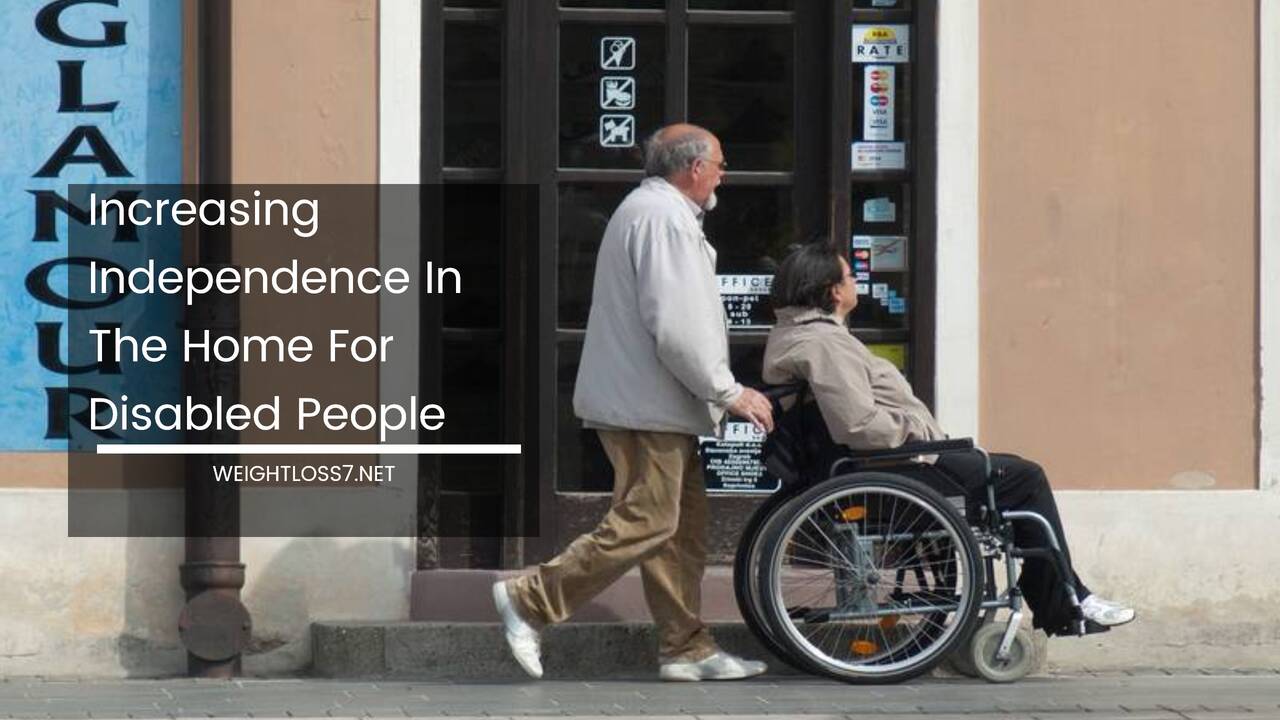How to Lose Fat Fast – Your Comprehensive Guide

How to Lose Fat Fast
Welcome to your comprehensive guide on how to lose fat fast. In a world filled with fad diets and quick fixes, we aim to provide you with a holistic approach to shedding excess fat while prioritizing your health and well-being.
Understanding Fat Loss
Before diving into the practical steps, it’s crucial to understand the science behind fat loss. Unlike weight loss, which can involve losing muscle and water weight, fat loss specifically targets reducing body fat while preserving lean muscle mass.
Fat is stored energy in your body, and to lose it effectively, you need to create a calorie deficit, meaning you burn more calories than you consume.
However, it’s not just about calories in versus calories out. Several factors influence fat loss, including genetics, hormones, and lifestyle choices.
Setting Realistic Goals
Embarking on a fat loss journey requires setting realistic and achievable goals. Whether you’re looking to shed a few pounds or undergo a significant transformation, having clear objectives will help you stay motivated and track your progress.
Begin by defining your ultimate goal, whether it’s fitting into a certain clothing size, improving your health markers, or boosting your confidence.
Once you have your long-term goal in mind, break it down into smaller, short-term goals. This step is essential because it allows you to celebrate victories along the way.
Creating a Balanced Diet Plan
Your diet plays a pivotal role in fat loss. It’s not about starving yourself or following restrictive diets; it’s about nourishing your body with the right foods in the right quantities. A balanced diet provides essential nutrients while promoting sustainable fat loss.
Consider incorporating the following LSI keywords into your diet plan:
- Healthy fats
- Lean protein sources
- Fiber-rich foods
- Complex carbohydrates
Your diet plan should focus on macronutrients – proteins, fats, and carbohydrates – in appropriate ratios to support your fat loss goals.
Remember that no single diet works for everyone, so it’s essential to customize your plan to fit your preferences and dietary restrictions.
Incorporating Exercise into Your Routine
While diet is crucial, exercise complements your fat loss efforts by boosting metabolism, preserving muscle, and enhancing overall health.
It’s important to find an exercise routine that you enjoy, as this will increase the likelihood of sticking with it.
Consider including LSI keywords related to exercise:
- Workout routines
- Physical activity
- Fitness regimen
The Role of Cardiovascular Workouts
Cardiovascular workouts, such as jogging, cycling, and swimming, help burn calories and improve cardiovascular health. To make the most of your cardio sessions, aim for at least 150 minutes of moderate-intensity exercise per week.
Strength Training for Fat Loss
Strength training is a game-changer for fat loss. It builds lean muscle mass, which increases your resting metabolic rate, meaning you burn more calories even at rest.
Begin with basic weightlifting exercises and gradually increase the intensity to challenge your muscles.
High-Intensity Interval Training (HIIT)
HIIT workouts are incredibly effective for fat loss. They involve short bursts of intense exercise followed by brief periods of rest or low-intensity recovery.
HIIT not only burns calories during the workout but also continues to burn calories post-exercise due to the afterburn effect.
Staying Hydrated for Fat Loss
Proper hydration is often overlooked in the fat loss journey. Drinking enough water is essential for various bodily functions, including metabolism and digestion.
Aim to consume at least 8 glasses (64 ounces) of water daily and more if you’re physically active.
Quality Sleep and Its Impact
Sleep is a powerful factor in fat loss. Lack of sleep can disrupt hormones that regulate appetite and lead to poor food choices.
Ensure you get 7-9 hours of quality sleep each night by creating a sleep-friendly environment and practicing relaxation techniques.
Managing Stress Levels
Stress can trigger emotional eating and hinder fat loss progress. Incorporate stress management techniques such as meditation, deep breathing, or yoga into your daily routine to keep stress levels in check.
The Importance of Mindful Eating
Mindful eating involves paying full attention to the eating experience. Avoid distractions like TV or smartphones while eating and savor each bite.
This practice can help you recognize true hunger and fullness cues, preventing overeating.
Fat-Burning Foods to Include
Certain foods can boost your metabolism and aid in fat loss. Incorporate these into your diet:
- Green tea
- Chili peppers
- Lean protein sources like chicken and tofu
- Whole grains
Portion Control Strategies
Understanding portion sizes is key to managing calorie intake. Use smaller plates, measure portions, and avoid mindless eating in front of the TV or computer.
Tracking Your Progress
To stay on the right track, track your progress diligently. Use tools like food journals and fitness apps to log your meals, workouts, and measurements. Periodically review your data to make necessary adjustments.
Supplements for Fat Loss
While not a magic solution, some supplements can support your fat loss journey. Consult with a healthcare professional before adding supplements to your regimen. Potential options include:
- Green tea extract
- Garcinia cambogia
- Conjugated linoleic acid (CLA)
- Caffeine
Avoiding Common Pitfalls
Understanding and avoiding common mistakes can prevent setbacks in your fat loss journey. Some common pitfalls include:
- Extreme calorie restriction
- Relying solely on exercise
- Skipping meals
- Emotional eating
Staying Consistent and Patient
Consistency is the key to long-term success. Understand that fat loss takes time, and there will be ups and downs along the way. Stay committed to your goals, even on challenging days.
Celebrating Milestones
Don’t forget to celebrate your achievements, no matter how small they may seem. Treat yourself to non-food rewards or share your progress with supportive friends and family.
Expert Advice on Fat Loss
We’ve gathered insights from fitness experts to provide you with valuable advice tailored to different body types and lifestyles.
Remember that what works for one person may not work for another, so experiment and find what suits you best.
FAQs
Is spot reduction possible?
Spot reduction, the idea of losing fat from specific areas, is a common misconception. Fat loss occurs throughout the body, not just in one targeted area. Consistent exercise and a balanced diet will help you lose fat from various parts of your body.
How quickly can I expect to see results?
The rate of fat loss varies from person to person and depends on factors like diet, exercise, and genetics. It’s essential to focus on gradual, sustainable progress rather than rapid changes.
Can I eat my favorite foods and still lose fat?
Yes, you can enjoy your favorite foods in moderation. It’s all about balance and portion control. Incorporating treats occasionally can help you stay on track with your fat loss goals.
Do I need to count calories to lose fat?
While calorie counting can be a useful tool, it’s not mandatory. Some individuals find it beneficial, while others prefer focusing on the quality of their food and portion sizes.
What role do hormones play in fat loss?
Hormones, such as insulin and cortisol, can influence fat storage and metabolism. Managing stress, getting adequate sleep, and eating balanced meals can help regulate these hormones.
Is it safe to use fat-burning supplements?
Before taking any supplements, consult with a healthcare professional. While some supplements may support fat loss, they can also have side effects and interactions with medications.
How can I stay motivated throughout my fat loss journey?
Maintaining motivation can be challenging, but setting goals, tracking progress, and finding a support system can help. Celebrate your achievements along the way to stay motivated.
Can I lose fat without exercising?
While it’s possible to lose fat through dietary changes alone, exercise enhances the fat loss process, improves overall health, and helps maintain lean muscle mass.
What’s the role of genetics in fat loss?
Genetics can influence how your body stores and loses fat. However, lifestyle choices, such as diet and exercise, play a significant role in fat loss, regardless of genetics.
Are cheat days or meals allowed during fat loss?
Yes, occasional cheat days or meals can be incorporated into your fat loss plan. They can help satisfy cravings and prevent feelings of deprivation, but it’s essential to practice moderation.
Final Remarks
Congratulations on taking the first step towards achieving your fat loss goals. This comprehensive guide has provided you with the knowledge and tools to embark on a successful fat loss journey.
Remember that it’s not about quick fixes but sustainable lifestyle changes that prioritize your health and well-being.
Stay consistent, stay patient, and celebrate every milestone along the way. Your body is capable of remarkable transformations when given the right care and attention.
For more resources and support, don’t hesitate to reach out to fitness experts and your support network. Your success is within reach, and you have the power to achieve your desired results.
Get started on your fat loss journey today, and remember, your health and well-being are worth the effort. Thank you for choosing this comprehensive guide as your companion on the path to fat loss success.

















